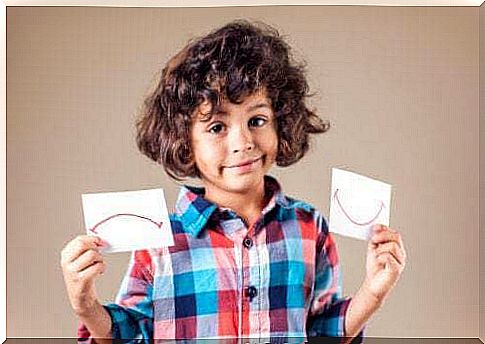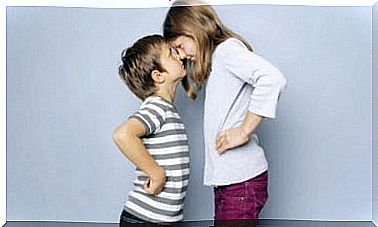The Importance Of Recognizing Children’s Emotions

Many parents today have been raised in an authoritarian manner, with an education based on high expectations and little sensitivity. Now that they have children, they would like to distance themselves from this method and act in a different way, valuing more aspects such as bonding and respect, but to do so they too must learn. In this article, we will talk about the importance of recognizing children’s emotions.
When one becomes a parent, it is common to repeat the patterns of education received. After all, it is about what one has learned. However, if you intend to establish a healthier and stronger bond with your children, the journey begins with emotions.
That is, you will have to help your children understand them, manage them and give them meaning. As a first step, however, it is necessary to recognize the emotions of children.
Emotional invalidation
Often, with the rush and daily commitments, it becomes difficult to have time to reflect before acting. We need to shower the kids, have dinner and go to bed before ten. So, we can’t waste time with the crisis that broke out because they didn’t want to leave the park. Or because they don’t want to get out of the tub. Or because they don’t like the clothes they have to wear.

In our eyes, their disproportionate reaction appears disproportionate to the motivations that trigger it, and we begin to think that they behave in this way to challenge or provoke us.
But, if we put ourselves in their shoes for a moment, we will understand that, for them, these reasons are important and that they are loaded with an emotional intensity that they cannot express otherwise.
We must remember that this is not a personal affront. The little ones do not want to disturb or manipulate us, so it is not necessary to start a power struggle with them. On the contrary, they need our understanding and guidance to learn how to manage the emotional state that invades them.
When we ignore their crying, scold them for screaming or don’t give due importance to the reasons for their concern, we send a negative message. We will let them understand that their emotions are not important, that they have no right to express or feel them, and that if they do, we will get angry and not love them anymore.
In doing so, they will begin to repress their emotions and experience them with discomfort, because denying them will not make them disappear. They will feel confused and insecure and will have some difficulty managing and understanding their own feelings and those of others.
The importance of recognizing children’s emotions
Therefore, it is important to think before acting in the face of children’s emotions. Perhaps our first impulse is to tell him that big babies don’t cry or that they always make us late.
But, if we look at things with the right perspective, we will understand that it is important to take the extra time and guide the child in his emotional explosion. In order to recognize children’s emotions, you could follow these steps:

- Name what they hear. Often they cannot accurately identify what emotion they are feeling at a particular moment. This way we help them give it a name.
- Recognize the emotion by transmitting to the child that it is a normal reaction and that he has the right to feel it.
- Explain the reasons. You may not understand them or find them convincing, but it is important to tell them.
- Offer the tools to manage those emotions. In this regard, they can be taught that it is possible to decrease the intensity of the emotion by changing their thoughts or looking for an alternative.
For example, we could explain: “I see that you are angry because you have to get out of the tub. It is normal to get angry because you have to stop playing when you feel so comfortable. But it’s late and we have to have dinner. If you want, you can help me prepare the omelette, like a real cook » .
A bond based on respect
Instead of minimizing his emotions or annoying you with his anger, we recognized and valued his feelings. We bonded with him, understood and accompanied him, and offered him an alternative to reduce his discomfort. In this way, the child will feel loved, respected and content. They will learn to identify their emotional states and deal with them in a healthy way. But above all it will create a bond of trust and affection with us.









